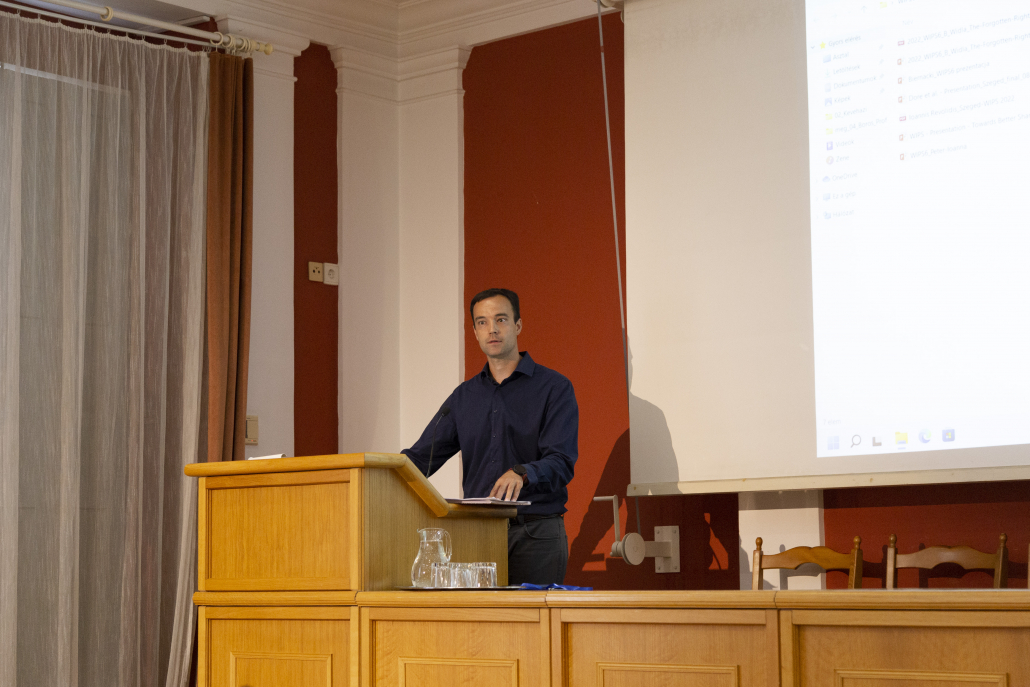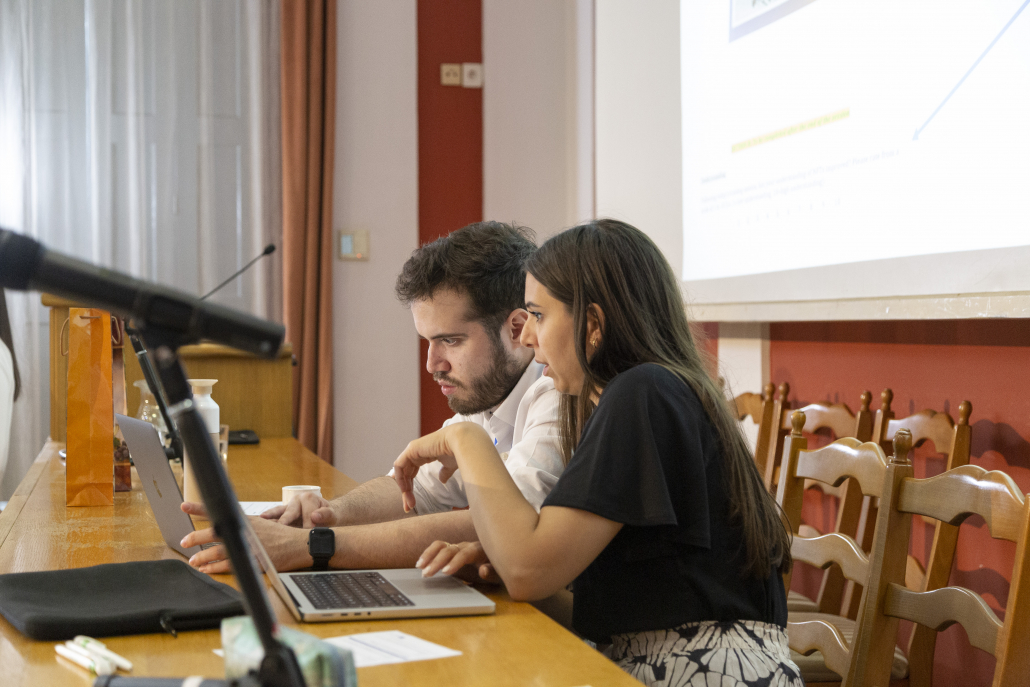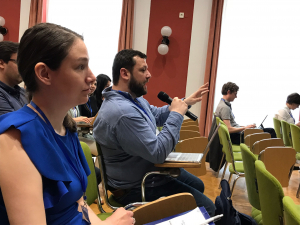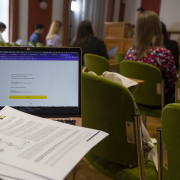Report: WIPS6 Conference in Szeged
Author: István Harkai
Photos by Isabel Beirigo
May has been a busy month of conferences for participants of the reCreating Europe research consortium. We presented at the ‘Open Up Museums!’ workshop in Trento, at the ECS Annual Conference in Nottingham, and concluded this series in Szeged on 9-10 June at the sixth Workshop on Intellectual Property (WIPS6). Although the conference was mainly in-person, due to anomalies in European air traffic, several speakers were unable to arrive, so the conference became a hybrid event. This year, a significant part of the event was dedicated to the GLAM sector and cultural heritage issues, as well as to the intersection of consumer protection and copyright law. The event featured two GLAM@HOME panels and a GLAM@HOME Training session, which were streamed and recorded online to the public.
Take a look at the recording of these panel sessions here.

Organiser Péter Mezei welcomes participants and speakers to Szeged
Day 1 – GLAM@Home
Following the welcoming words of the main organizer and host of the event, Péter Mezei, the GLAM@HOME Panel started with an online presentation by keynote speaker, Maurizio Borghi (University of Torino), on rethinking the Commons in the era of data capitalism. Maurizio Borghi was followed by Camille Françoise (Creative Commons), who shared her thoughts on the future of open culture, with a copyright policy outlook.
Giulia Dore, Marta Arisi (University of Trento) and Pelin Turan (Scuola Superiore Sant’Anna) (all members of the H2020 ReCreating Europe WP5 GLAM research group) provided insights into a comparative EU analysis of the freedom of panorama and the reproduction of public domain art. The first panel ended with a presentation by Cristiana Sappa (IÉSEG School of Management) and Enrico Bondio (City University) on the challenges and opportunities for copyright stakeholders in the GLAM sector in the context of digitalisation.
The second GLAM@HOME Panel began with Svjetlana Ivanović (University of East Sarajevo), who addressed the issue of accessibility and digitisation of out-of-commerce works. She was followed by Francisco Duque Lima (KU Leuven), who analysed the intersection between non-commercial works and abandonware video games. Bohdan Widła (Jagiellonian University) closed the panel with a presentation on the question of scientific editions and first editions in the digital single market.
After the lunch break, a workshop-style session followed, namely the GLAM@HOME Training, where Péter Mezei and Ioanna Lapatoura (University of Nottingham) gave a training on NFTs and cultural heritage preservation, followed by the copyright practice of Francisco Duque Lima and Marta Arisi, who introduced the audience to the application of participatory problem-solving tools in the cultural heritage sector.

Franciso Duque Lima and Marta Arisi discuss the GLAM Training session
The first day ended with the ‘Junior Track’. Roya Pary Bouery (University Lyon 3 Jean Moulin) presented her research results on the restitution of artefacts looted during World War II and the role of the GLAM sector. Wojciech Biernacki (Adam Mickievicz University) talked about the relevance of the distinction of data, information, and knowledge in the light of exchange of non-personal data. The last speaker of the day was Flóra Anna Gubicz (Hungarian Intellectual Property Office), who shared her thoughts about whether the out-of-commerce regime will be a”game-changer” in the process of mass digitalisation.
Day 2 – Overlaps between Consumer Protection and IP Law
The second day of the conference was dedicated to overlaps between consumer protection and intellectual property. Kacper Szkalej (Lund University) theorised about the exhaustion of the making available right regarding the consumptive use of legal digital content. Simon Geiregat (Ghent University) shared his thoughts about the needs and wills of digital content consumers. The last segment was dedicated to the topics of IP and technology. Ioannis Revolidis (University of Malta), Radim Charvát (Masaryk University) and Antoni Rubí Puig (Universitat Pompeu Fabra) dedicated their presentations to the questions and problems raised by Non-Fungible Tokens (NFTs) from different perspectives. The session was closed by Anikó Grad-Gyenge (BME Faculty of Economic and Social Sciences), who talked about the impact of the development of EU law on the exclusive nature of copyright law.

A participant questions the speakers during a panel session
WIPS6 was a fantastic opportunity to host the series face-to-face in Szeged, for the first time in three years. Despite the challenges, the workshop successfully brought together junior and senior academics to discuss, debate and explore current issues in intellectual property law.
We look forward to welcoming you next year for WIPS7!






